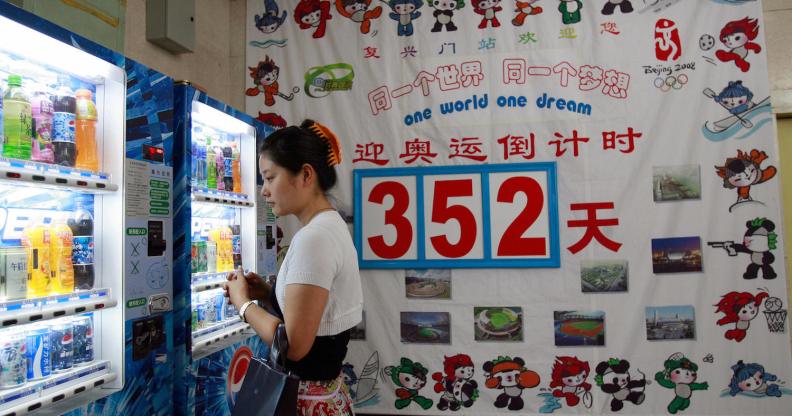China trials HIV testing kits in vending machines on university campuses

China has begun trialling selling affordable HIV testing kits in vending machines on university campuses.
The kits are sold alongside fresh food and other items.
The pilot scheme hopes to help those worried about going to a clinic for a test have access to testing kits.

The experiment began on five university campuses in 2016, but was only recently reported on by local media.
The campuses in Beijing, Harbin, Guangxi and Heilongjiang stocked the testing kits for around $4 each.
It includes a urine sample bottle which can be dropped off at the vending machine, and results are available to view online 10 to 15 days later.
Those behind the scheme say they hope it represents a positive step towards more people being tested.
“Helping people to run a test for themselves like a take-home pregnancy test would be very helpful,” Martin Yang, a program manager at the Beijing Gender Health Education Institute, tells NPR.
While some steps towards acceptance have been taken in China, homosexuality still remains taboo.
According to reports, those who are HIV-positive say they are turned away from clinics and hospitals despite regulations outlawing discrimination.
A university basketball team last week came under fire for carrying signs which encourage anti-LGBT attitudes.
Apple earlier this year stripped all reference to HIV/AIDS from the launch of a special red charity edition iPhone in China.
The absence of any charity branding in China could be a response to the country’s cultural skittishness around the AIDS crisis.
A gay woman in China has also set up a marriage of convenience service called iHomo to help gay people trick their families into thinking they are married.
A transgender man in China in January won an illegal dismissal case after being fired from his job.

